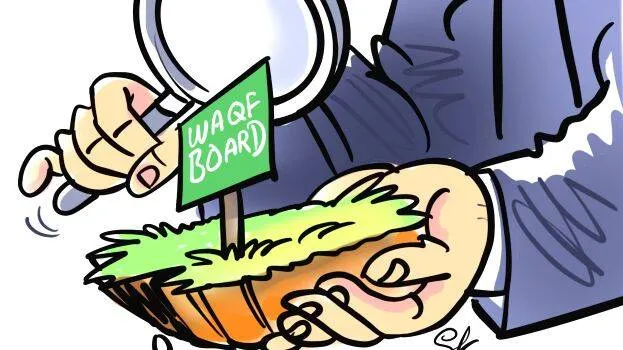

NEW DELHI: The Supreme Court has intervened without completely staying the Waqf Amendment Act, but by banning certain provisions that would have significantly impacted the Waqf. The court made observations that were a relief to the central government and Muslim organizations at the same time.
The trend of converting properties into a waqf on the grounds of long-term use was invalidated in the new amendment to the law. The Supreme Court upheld it. The bench comprising Chief Justice B.R. Gavai and Justice Augustine George Masih held that this was necessary to prevent encroachments and misuse. The provision in the amended law requiring all waqfs to be registered was also upheld.
The appointment of non-Muslims as Chief Executive Officers (CEOs) was also not stayed. The Supreme Court did not prevent the inclusion of people of other religions in the board and council. The court directed that every effort should be made to appoint a person from the Muslim community as the CEO.
The court also said that there is nothing wrong with the condition that 'a person cannot donate property or money owned by another person'.
The Muslim League and Samastha had questioned the constitutional validity of more than 12 sections of the amendment act. What the court gave is an interim verdict. Chief Justice Gavai wrote the 128-page verdict. As the case involves constitutional issues, it may go to a larger bench.
What is beneficial for the Waqf side
• The disputed land will not be denotified. According to Section 3C (2) of the Amendment Act, the designated officer above the District Collector should examine the matter if there is a dispute that it is government land. The amendment also states that it will not be considered as Waqf land until a decision is taken.
The situation was such that the disputed land would be denotified as soon as the investigation was decided. With this provision being stayed by the Supreme Court, the land will not be denotified.
Waqf properties involved in land dispute cases in the Waqf Tribunal and the High Court should not be taken into possession or the revenue records should not be changed. Corrections should not be made in the records of the board either. The transfer of properties to a third party during the course of the case has also been prohibited.
• Section 3C(3) - Stay on the provision that if the Designated Officer finds that the land that was the Waqf land belongs to the Government, the Revenue records should be corrected and a report should be submitted to the State Government in this regard.
• Section 3C(4)- Stay on the provision that the State Government shall direct the Waqf Board to make the necessary corrections as soon as the report of the Designated Officer is received.
• Section 3(R)- Stay on the provision that only those who have practiced Islam for at least 5 years can be granted waqf. The stay was imposed because no mechanism, procedure or rules were brought for this. At the same time, the court pointed out that the provision was brought to prevent misuse by those with financial burdens.